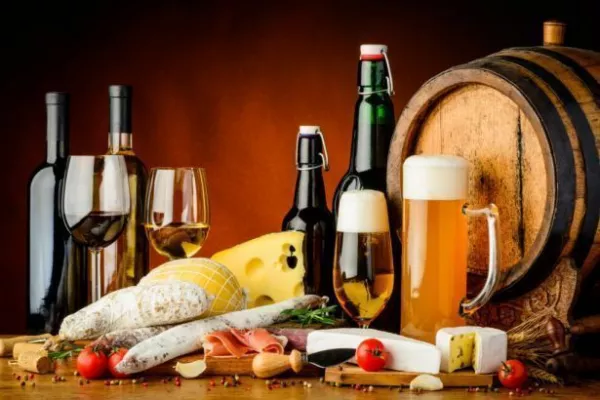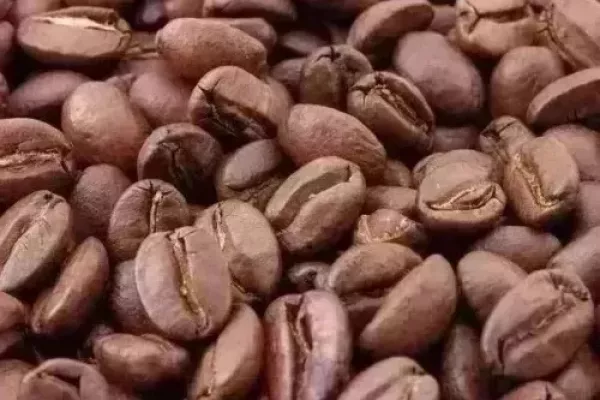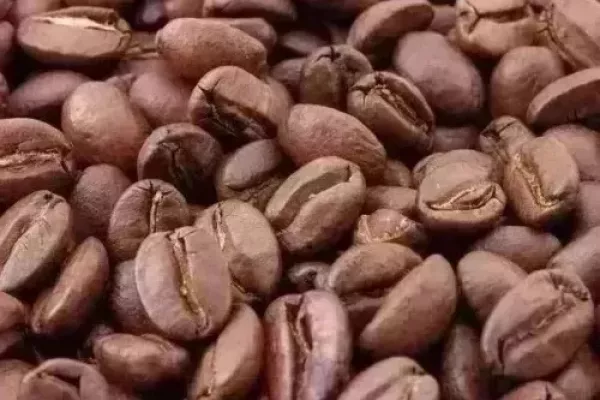Hospitality Ireland presents a round-up of global food, drinks, hotel, restaurant and pub news.
Givaudan Posts Nine-Month Sales Growth, Says Supply Chain Working
Flavour and fragrance maker Givaudan's sales rose to 5.07 billion Swiss francs ($5.47 billion) in the first nine months of the year, up 7.7% on a like-for-like basis and 5.8% in Swiss francs, it said on Tuesday October 12.
"As the COVID-19 pandemic continued to have an impact on a global level, Givaudan sustained good business momentum whilst maintaining its operations and global supply chain at a high level. The strong growth was achieved across all product segments and geographies, with the mature markets growing at 6.6% and the high growth markets at 9.2% on a like-for-like basis," it said.
The Swiss company, which makes flavours for food and drinks and fragrances for soap and washing powder, has benefited from steady demand for food and household items throughout the pandemic and a recovery this year in its strongly affected business with perfumes and foods for out-of-home consumption.
"I am very happy with our continued strong performance across all parts of our business and in particular the ongoing recovery in Fine Fragrances, Active Beauty and in foodservice," Chief Executive Gilles Andrier said.
The group confirmed it is aiming for 4-5% like-for-like sales growth on average per year over a five-year cycle to 2025.
Peer Symrise gives a nine-month trading update on Oct. 26, while IFF reports on the third quarter on Nov. 8.
Trump Close To Deal To Sell DC Hotel - WSJ
Former U.S. President Donald Trump's family company is in advanced talks to sell the rights to its hotel in Washington, D.C., in a deal worth more than $370 million, The Wall Street Journal reported on Tuesday October 12.
Miami-based investment firm CGI Merchant Group is in talks to acquire the lease on the hotel, the report said, citing people familiar with the matter.
The Trump International Hotel is a historic building the Trump Organization leases from the federal government and a popular gathering spot for his supporters and for foreign dignitaries.
On Friday October 8, the U.S. House Committee on Oversight and Reform said recently obtained government documents raised "troubling" questions about the hotel.
CGI Merchant is also in talks with hotel operators, including Hilton Worldwide Holdings Inc's Waldorf Astoria luxury brand about removing the Trump name in favor of that of another hotel manager, the report said.
The lease deal could ultimately fetch closer to $400 million, according to the report.
About a dozen firms, including pension funds, foreign government funds and high net-worth individuals, expressed interest in the property, the report added.
CGI Merchant and the Trump Organization did not immediately respond to Reuters requests for comment.
Restaurant Chain Portillo's Aims To Raise Up To $405m In U.S. IPO
Restaurant chain Portillo's Inc said on Tuesday October 12 that it planned to raise up to $405.4 million in its initial public offering in the United States, making it the latest company to tap the country's red-hot capital markets.
Known for its Chicago-style hot dogs, Portillo's aims to sell 20.3 million shares in the offering at between $17 and $20 apiece.
Its filing showed that the company expected third-quarter revenue of $138 million, an over 15% jump from a year ago, as restaurant chains benefit from a return to dining out brought by vaccine rollouts and easing COVID-19 curbs.
Its move is another sign that the U.S. IPO market has not lost steam even as global equities suffer from wild swings due to concerns over inflation and debt-laden Chinese property developer Evergrande.
Jefferies, Morgan Stanley, BofA Securities and Piper Sandler are among the underwriters for the offering.
Portillo's, which is backed by private equity firm Berkshire Partners, said the underwriters have an option to purchase up to an additional 3.04 million shares within 30 days from the filing of its prospectus.
Luxury Giant LVMH's Third Quarter Sales Up By 20%
Sales at French luxury group LVMH's fashion and leather goods division rose strongly in the third quarter even though overall revenue growth in Asia and the United States eased from their stellar first-half performance.
LVMH, the luxury products of which span Moët & Chandon champagne and Bulgari timepieces, said on Tuesday October 12 that the popularity of its star labels Louis Vuitton and Dior helped its fashion and leather goods division, which accounts for nearly half of group sales, to report 24% growth.
Revenues for this business at the end of the quarter were 38% above their pre-pandemic, 2019 level, the same rate as in the first half.
The luxury goods industry has bounced back strongly from the health crisis, even if international travel, a key growth driver in pre-pandemic times, has not fully resumed.
LVMH chief financial officer Jean-Jacques Guiony said that revenue growth in Asia had been under pressure in August due to anti-coronavirus restrictions being partially re-imposed in some countries but said the group had not noticed a change in consumer behavior in China.
A call by China’s President Xi Jinping in August for "common prosperity" and wealth redistribution had prompted investors' to worry that Beijing might promote measures aimed at reducing the country’s wealth gap, curbing high-end consumption in the world's largest luxury market.
"We don’t see any reason that this could be detrimental to the upper middle class that is the bulk of our customer base," Guiony said.
Luca Solca, analyst at Bernstein, was positive on the strong revenue performance at the fashion and leather goods business.
"We believe this should comes as a relief to investors, especially after the August wobble in the sector and doubts on Chinese demand trends and even if other divisions reduce their growth versus 2019 in the third quarter.”
The company's performance showed a marked improvement in Europe in the third quarter, even without deep-pocketed visitors from Asia, as local travel resumed over the summer.
LVMH recorded 28% revenue growth in the United States, compared with a 60% rise in the first half of the year, and 12% in Asia, excluding Japan, compared with 70% in the first six months of the year.
Guiony said the group had no supply chain issues given its manufacturing is largely based in Europe and also brushed off concerns about rising shipping costs, noting that the group has sufficient margins to cope.
Overall Like-for-like sales, stripping out the effect of foreign exchange fluctuations, rose by 20% to €15.51 billion in the three months to September.
Growth was roughly in line with an analyst consensus forecast for a 21% rise.
Guiony said the company would continue to focus on broadening the appeal of its blockbuster acquisition, U.S. jeweller Tiffany, by refocusing its product assortment and ongoing marketing efforts.
LVMH has been rebranding the jeweller with an eye to attracting younger consumers, projecting a campaign starring Beyonce and Jay-Z on digital billboards in New York City’s Times Square and creating buzz on social media with K-pop star Rose.
Marston's Says Q4 Sales Above Pre-Pandemic Levels
Pub operator Marston's said that sales in the fourth quarter were above pre-pandemic levels, as people filled up its bars and made use of its outdoor seating to watch football tournaments and enjoy the warm weather after lockdowns were eased.
The nearly 200-year old brewer said on Wednesday October 13 that sales grew 2% in the quarter ending Oct. 2, compared to 2019 levels, with temporary cuts on value added tax also helping the group.
Marston's, like other pub owners in Britain, is still trying recoup some of the heavy losses suffered when pubs were forced shut or were operating in low capacity due to the COVID-19 pandemic. The hospitality industry is also grappling with waning government support as economies reopen in full swing.
Marston's said it had seen some "small pockets of disruption" in the supply chain, but added that it was managing the industry-wide staff shortage well.
Over the past year, pubs across Britain have laid off thousands of workers to stay afloat, but the industry now faces fresh challenges in the run up to Christmas because of a shortage of labour after a double whammy of Brexit and the pandemic forcing many Europeans to return home.
Total pub sales were £402 million for the year, the company said.
Nestlé Revamps Geographic Structure, Makes New Board Appointments
Nestlé is overhauling its geographic structure, the world's largest food company said on Wednesday October 13, creating new zones for North America and for Greater China.
The maker of Nescafé instant coffee and KitKat chocolate bars also said it was changing its executive board to align with the new structure, which takes effect from January.
Company veteran Chris Johnson, now head of Nestlé's Asia, Oceania and sub-Saharan Africa zone (AOA), will retire from the executive board and be replaced by Remy Ejel, current head of Nestlé's Middle East and North Africa business.
Steve Presley, chairman and CEO Nestlé USA, will join the executive board as CEO Zone North America, Nestlé's biggest market with annual sales of 24.7 billion Swiss francs ($26.59 billion).
David Zhang, CEO of Nestlé's food seasoning business Totole and business executive officer for food in Greater China, will join the board as the head of the Greater China business.
"With the new zone structure, we will significantly sharpen our geographic focus to drive sustained profitable growth everywhere we operate," Nestlé CEO Mark Schneider said in a statement.
"This move will bring us closer to consumers and customers, unlock new business opportunities and enable us to be even more agile in a fast-moving consumer environment."
The new five geographic zone structure does not include Nestlé Health Science and its capsule coffee operation Nespresso, which are managed globally.
Long-standing area executives Laurent Friexe will lead the newly formed Latin America business, while Marco Settembri will lead Zone Europe. Nestlé will report sales numbers of the new Zone structure for the first time on April 21.
Jon Cox, an analyst at Kepler Cheuvreux, said the changes were sensible because of the enormous size of Nestlé's business, which had been previously divided into three zones globally.
"It makes sense to break out North America with the U.S. as its biggest market, and China, which is a strategically important region," Cox said.
Takeaway.com Shares Dip As U.S. Growth Stalls; CEO Sees Better Q4
Weaker than expected third-quarter orders at Just Eat Takeaway.com knocked shares in the online food delivery company on Wednesday October 13, with orders in the United States growing just 3%.
Shares in the company, which completed its $7.3 billion purchase of U.S. peer GrubHub in June, were down 4.4% to €62.11 at 0755 GMT on Wednesday October 13, taking losses this year to more than 30%.
Total orders in the quarter rose 25% to 266 million, below the 35% increase expected by analysts at ING bank.
Growth in Britain, the company's largest market, was 51%, but weakest in the United States, now its second-biggest market.
GrubHub Chief Executive Matt Maloney said last week that he intended to leave in December, and Just Eat Takeaway said on Wednesday October 13 that it had started "an improvement programme re-focusing the company on GrubHub's strongholds".
Group CEO Jitse Groen said he would address the U.S. situation more fully at a capital markets day Oct. 21. But he said that the company is currently seeing a return to pre-pandemic behaviour in its biggest markets, citing traffic data and workers returning to offices.
He said that, in combination with darker days and worse weather, should lead to a stronger fourth quarter.
"We presume there are not going to be more lockdowns, in which case of course we would grow faster than what we currently have in our budget" expectations, he told analysts on a call.
In August, GrubHub suffered a setback when New York City, its largest U.S. market, capped the commissions it and rivals can charge restaurants to use their platforms at 15% of food orders for delivery.
Takeaway competes with Uber Eats, and Door Dash, in the United States, and Deliveroo and Delivery Hero in Europe, among others.
The company on Wednesday repeated its full-year forecast for a loss before interest, tax, depreciation and amortisation of 1%-1.5% on a gross transaction value of €28 billion to €30 billion for 2021, or a loss of €280 million to €380 million.
In August, Takeaway reported an EBITDA loss of €190 million for the first half, but said it expected that number to improve in the second half.
Third-quarter gross transaction value, a common measure for e-commerce companies, increased by €6.8 billion, or 21%, bringing the nine-month total to €20.9 billion.
News by Reuters, edited by Hospitality Ireland. Click subscribe to sign up for the Hospitality Ireland print edition.









